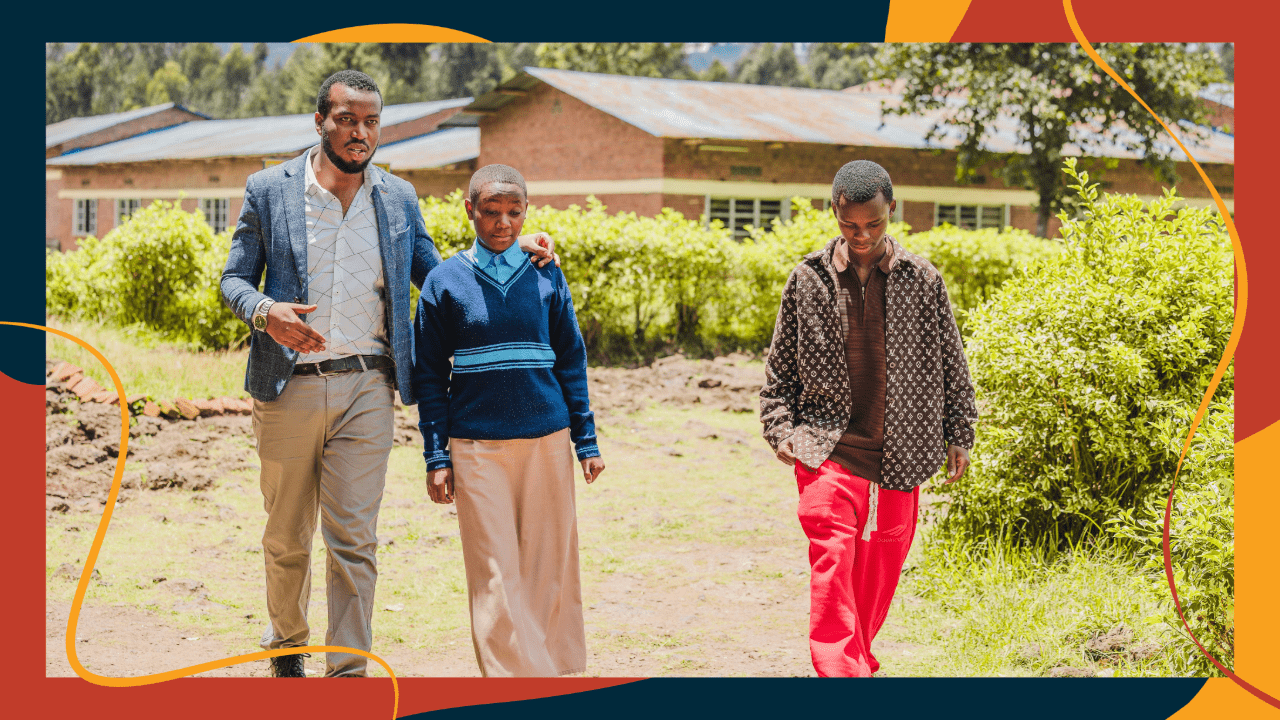In the heart of Rwanda’s Nyabihu District, a young changemaker is quietly transforming lives. His name is Mugisha Claude, and through his organization, Mhelper Group, he’s creating a future where street children return to classrooms and young people learn to take care of their mental well-being.
What started as a personal conviction has become a movement. Mugisha, still in his early twenties, founded Mhelper Group to address issues he saw growing up—issues that many ignored. He witnessed students struggle in silence, not because they lacked intelligence, but because their home lives were filled with hardship, poverty, and emotional neglect.
“I saw classmates lose hope because of problems beyond their control,” Mugisha recalls. “Even after finishing school, many just sat at home, unable to move forward.”
These experiences shaped his mission: to tackle the invisible wounds people carry—especially young people—and to fight for a world where mental health matters as much as physical health.
Mhelper Group has already made impressive strides. The organization has held conversations with over 100 families, teaching them how to care for children with love and intention from an early age. They’ve also reached more than 400 students, encouraging them to dream big, become entrepreneurs, and prioritize their mental health.
Most notably, in partnership with local authorities, Mhelper Group has rescued over 10 children from life on the streets, reintegrating them into schools like G.S. Mukamira and Collège APARPE, where they receive close guidance and mental health support.
But for Mugisha, this is just the beginning. “I want to help more children, but our biggest challenge is limited resources,” he admits. “There’s also a shortage of mental health professionals to support these kids long-term.”
Mugisha emphasizes that what he’s doing isn’t charity—it’s nation-building.
“Helping children is helping Rwanda,” he says. “They are the future. If we lose them to the streets or mental illness, we lose so much more.”
According to his research, half of the students surveyed after high school never moved forward. Instead of jobs or mentorship opportunities, they stayed idle at home—often due to family pressure, financial struggles, or lack of support systems. The result? A rise in anxiety, depression, and hopelessness.
“Many of them feel that their only way out is to leave the country,” Mugisha explains. “But when they get out there, the world doesn’t always give them what they expected.”
Today, Mhelper Group works closely with Nyabihu District and GIZ Rwanda, a German development agency that supports local initiatives. But Mugisha dreams of scaling their work across the country—to reach more youth, rescue more children, and train more families and educators.
He has a message for young people across Rwanda: take mental health seriously. “Learn about it. Talk about it. If something feels wrong, don’t ignore it—reach out for help,” he urges. “Visit a health center, talk to a counselor, or come to us at Mhelper. There is no shame in needing support.”
He also encourages youth to live with intention: “Avoid drugs, use social media responsibly, and don’t be afraid to build a meaningful life step by step.”
Most importantly, Mugisha believes that change is everyone’s responsibility—not just the government’s.
“Every Rwandan has a role to play in making our country stronger,” he says. “When we help one child, we build a future not just for them—but for all of us.”


